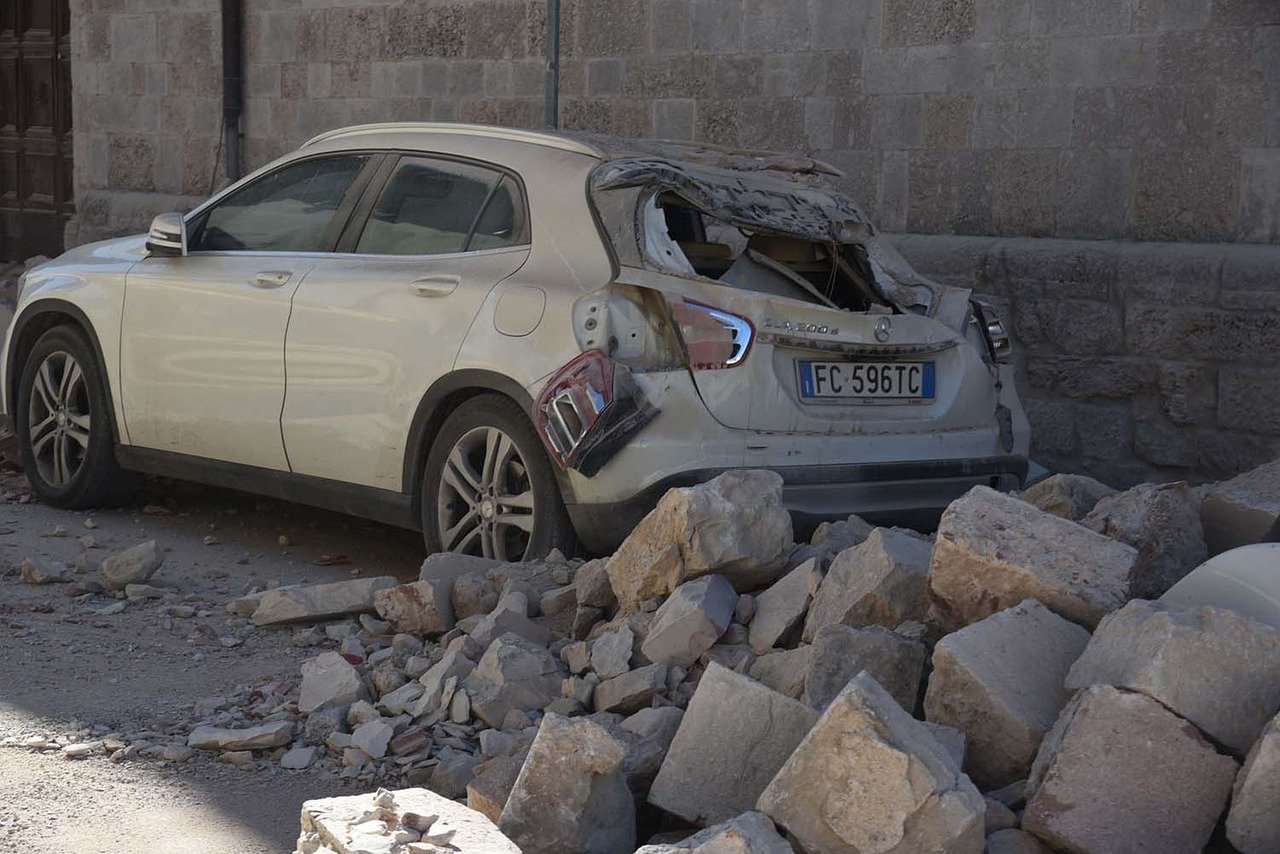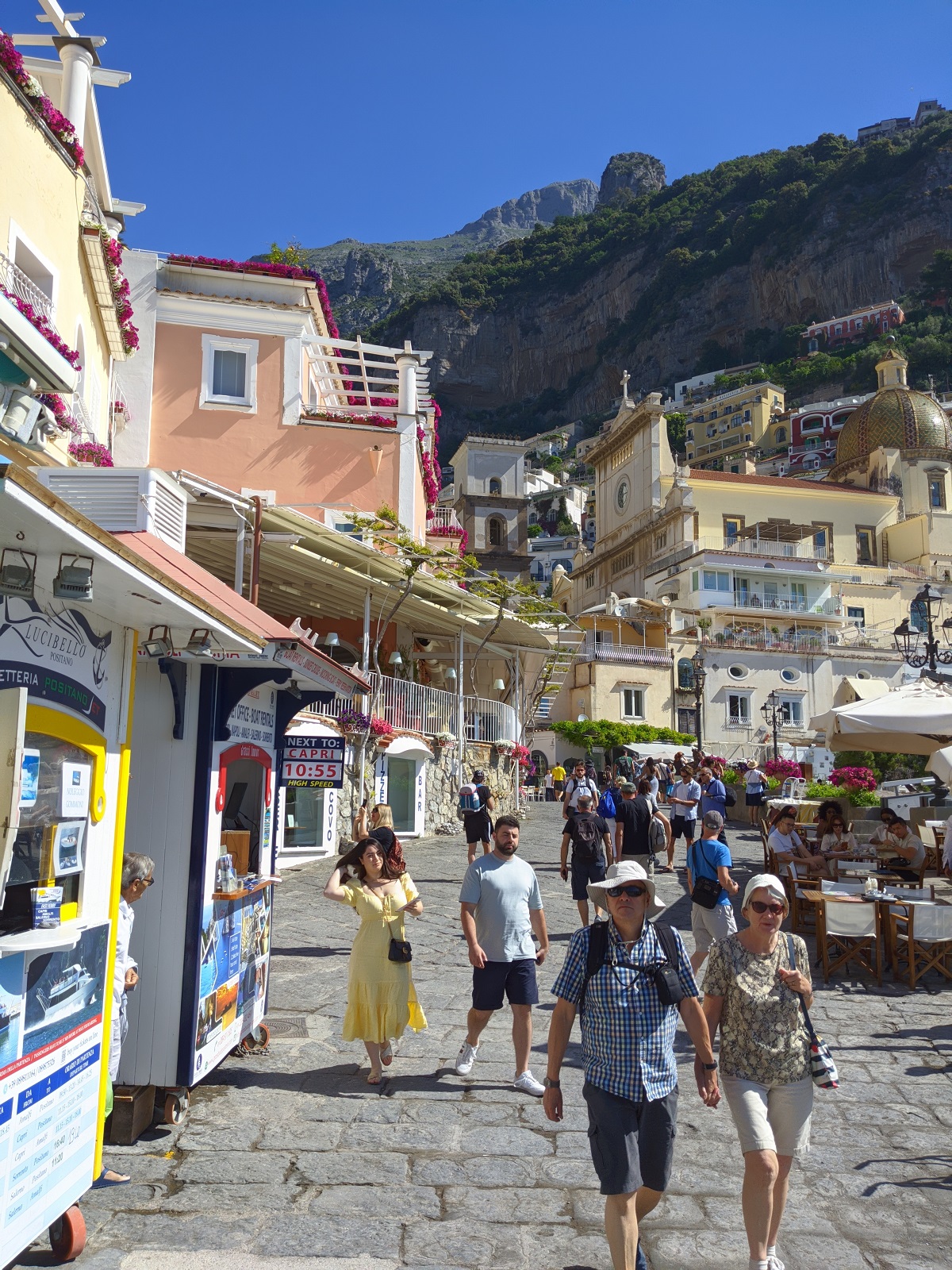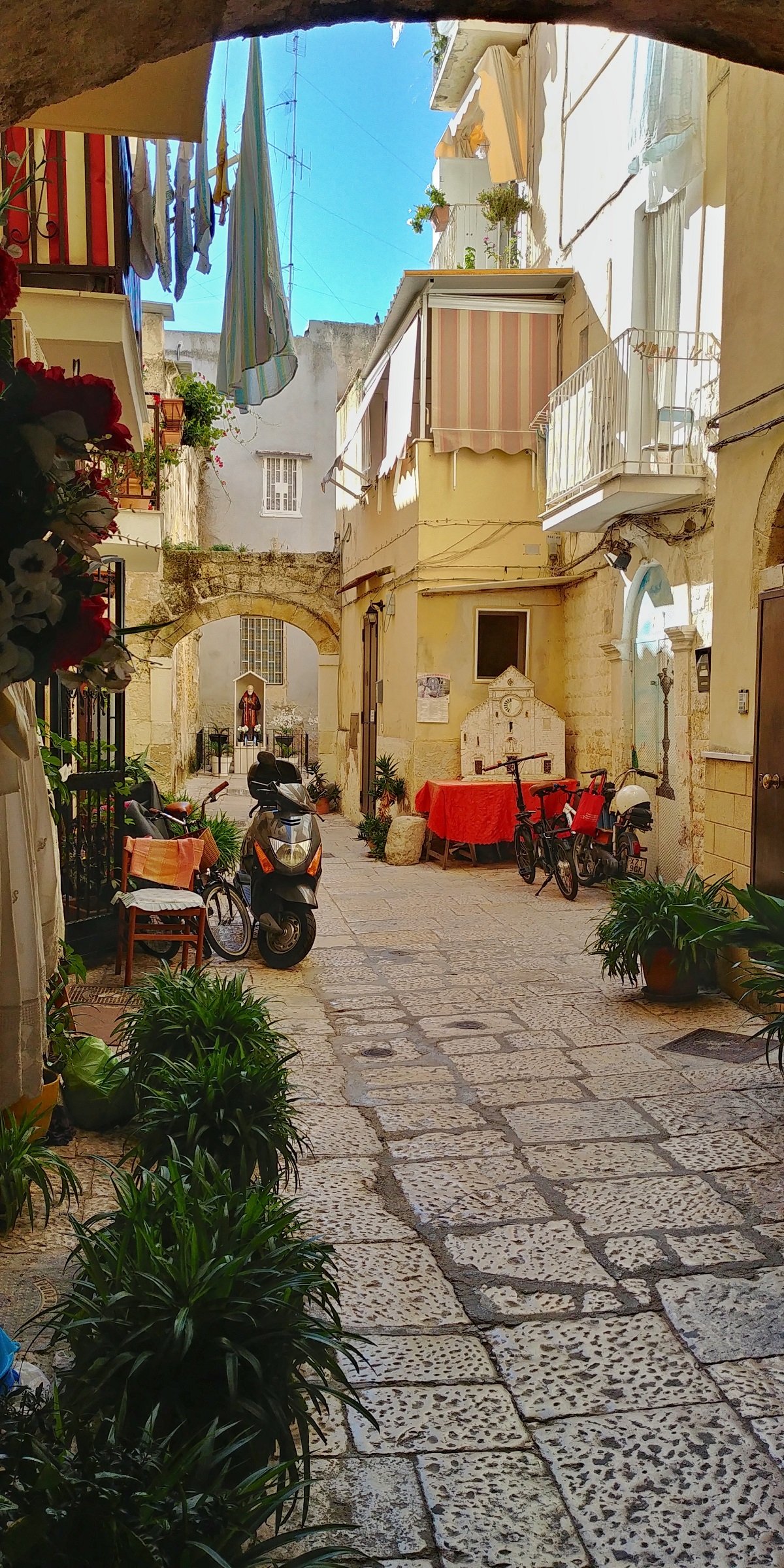- Home
- Moments in Italy
- Earthquake Risk in Italy
Join A Secret Italy
You come to Italy thinking it will be a trip. You leave knowing it was a beginning
Earthquake Risks in Italy: The Most Dangerous and Safest Areas Revealed
Naples Earthquake Update
On July 18, 2025, a 4.0 magnitude earthquake struck the Campi Flegrei area near Naples, marking one of the strongest quakes in the region in the past 40 years (the strongest was less than a month ago). The quake occurred at 09:14 AM at a depth of 2.5 km, with the epicenter near Pozzuoli, just outside of Naples.
Many residents were angry, saying it felt much stronger than that, but experts say that was because it was a lot shallower than the previous one last month—even though that one was 4.6, it was deeper and therefore felt less severe.
The shock was widely felt in Naples, causing many residents to run into the streets. No injuries or significant damage to buildings have been reported so far.
As a precaution, train services in and around Naples were suspended. Delays of up to 90 minutes were reported across various routes.
It all stems from the Campi Flegrei area, a VERY DANGEROUS area I have discussed here.
We answer your questions about earthquake risk in popular tourist destinations, Rome, Florence, etc., in the FAQ at the bottom of the page.
 earthquake in Norcia Italy
earthquake in Norcia ItalyWe are often asked where the earthquake risk in Italy is at its most dangerous. Italy has 20 regions, so the earthquake risk does vary a lot. To get an answer for you, we've spent a lot of time researching all these regions and discovered not only the most at-risk regions but also the least-at-risk regions too. Simply scroll down and discover if the region of Italy you are visiting is at risk.
For volcano risk in Italy, click here.
High-risk earthquake regions
Campo Flegrei, near Naples, is often considered the most dangerous seismic area in all of Italy, and experts warn that it is in an extremely volatile state.
Overall, though, a few areas of Italy stand out when it comes to earthquakes; they are as follows:
- The entire central mountain range area, but particularly the area running between Umbria and Le Marche in central Italy, is high-risk. This area has been badly hit in recent times with earthquakes, leading to extensive damage to property and loss of life.
- Southwestern part of Calabria;
- Northeastern and southwestern coasts of Sicily;
- The area north of Udine, bordering Slovenia, is Italy's far northeast corner, located in the region of Friuli Venezia Giulia.
 Positano & the Amalfi Coast, shown in the photo, is not considered a high risk area.
Positano & the Amalfi Coast, shown in the photo, is not considered a high risk area.Low risk of earthquake
The low-risk areas include:
- Eastern parts of Piedmont are at low risk of earthquakes; however, Turin, the region's capital, is situated just outside this low-risk zone. As a result, the city falls into the next category, with a low-to-medium earthquake risk.
- Most of Lombardy, the region where Milan is located, has a relatively low earthquake risk. However, Milan itself falls just outside the low-risk zone, placing it in the lower end of the medium-risk category, similar to Turin.
- The eastern half of Trentino-Alto Adige.
- The southern half of Puglia (from south of Bari to the southern tip of Puglia).
Earthquake Safety in Italy
While earthquakes in Italy are rare, they can happen, especially in certain regions like central and southern Italy. Knowing what to do in the unlikely event of an earthquake can help you stay safe and calm during your visit. But let me reassure you—over the last thirty years of traveling all across this beautiful country, including countless visits to high-risk earthquake zones, I’ve never experienced more than a minor tremor. That said, being prepared for the unexpected is always a good idea.
If you’re indoors during an earthquake, the golden rule is to drop, cover, and hold on. Stay away from windows, mirrors, and anything that could shatter or fall, like shelves or light fixtures. If you can’t get under a sturdy table or desk, shelter next to large, stable furniture like a couch or bed. These items can absorb falling debris, creating a "safe zone" beside them. Protect your head and neck with your arms and stay low. Avoid doorways unless you know for certain they are structurally strong (many in Italy’s historic buildings are not).
If you’re outside, move away from buildings, walls, and anything that might fall, like power lines or streetlights. Find an open area and stay put until the shaking stops. Italy’s historic architecture is stunning but can pose risks during earthquakes, so be mindful of falling debris.
If you’re driving, pull over to a safe spot away from overpasses, bridges, or tunnels, and remain in your car until the shaking stops.
After the quake, be prepared for aftershocks and follow local authorities’ guidance. Italians are experienced with earthquakes, so listen to locals—they often know the safest places nearby.
Earthquakes may sound daunting, but the chances of experiencing one during your visit to Italy are incredibly slim. With a little preparation and calm thinking, you’ll feel confident to explore Italy’s beauty, just as I’ve done for decades.
The Questions We Get Asked Most About Earthquakes in Italy
Is Rome at risk of earthquakes?
Is Rome at risk of earthquakes?
Rome is at the upper end of the medium risk category and borders onto the higher risk category.
Is Florence at risk of earthquakes?
Is Florence at risk of earthquakes?
Florence, located in the Tuscany region (rated in our top three regions in Italy), is at the upper end of the medium risk category for earthquakes.
Tuscany is classified as a moderate earthquake risk zone; however, most of the risk is in the northern and central parts. If you're visiting cities like Florence or Arezzo, you might notice that they sit close to the Apennine mountains, where seismic activity is a bit more common. While big earthquakes are rare, smaller tremors can sometimes make their presence known, and you may even feel them in Florence. Southern Tuscany has a much lower risk.
Is Venice at risk of earthquakes?
Is Venice at risk of earthquakes?
Situated on a group of islands in the Venetian Lagoon, the city lies in an area that’s not known for significant seismic activity. While Italy as a whole has its earthquake zones, Venice’s flat landscape and distance from major fault lines help keep the risk to a minimum. That said, the city’s centuries-old architecture, built on wooden foundations, is carefully monitored to ensure it remains safe.
Is the Amalfi Coast a high-risk earthquake zone?
Is the Amalfi Coast a high-risk earthquake zone?
No, it is not considered a high-risk zone and is considered one of the safest parts of the Campania region.
Where was the worst earthquake in Italy?
Where was the worst earthquake in Italy?
In Messina in 1908, it is believed that anywhere between 75,000 and 200,000 people were killed. This is the worst earthquake in European history and devastated both Eastern Sicily and Southern Calabria.
When was the last major earthquake in Italy?
When was the last major earthquake in Italy?
Where can I get info when a major earthquake occurs in Italy.
Where can I get info when a major earthquake occurs in Italy.
Residents and tourists in Italy should stay informed through official channels, such as Italy's Civil Protection Department, and be aware of emergency procedures and evacuation routes. If you are not in an emergency situation or in an effected area you can follow the latest on major news events in Italy, including earthquakes, on our blog - you can follow us here.
Are there early warning systems for earthquakes in Italy?
Are there early warning systems for earthquakes in Italy?
Yes, Italy has implemented early warning systems, such as the ShakeAlert® system, to provide seconds to minutes of warning before strong shaking occurs.
Can earthquakes trigger volcanic activity in Italy?
Can earthquakes trigger volcanic activity in Italy?
Italy has both seismic and volcanic activity, but earthquakes do not directly trigger volcanic eruptions. They are separate geological phenomena.
Where is there No Earthquake Risk in Italy?
When it comes to earthquakes, there is virtually nowhere on earth that is zero risk. In Italy, the region with virtually no risk of earthquakes is Sardinia. It is pretty much as safe as the safest corners of the globe.
Earthquake Risk Zones in Italy Mapped
Is the region of Italy you're visiting at risk? Have a look at the seismic risk map for Italy
Important Note
If you are going on vacation to Italy then the earthquake risk will probably not influence your decision on where to visit. I am no statistician, but I would think that the risk of an earthquake happening during your week or two in Italy would be tiny.
Of course, there is never a guarantee of anything these days so always make sure you are insured - see our important advice here.
However, if you are buying a house in Italy then you need to seriously consider if it is wise to buy real estate that is located in an earthquake prone area. The reasons for this are twofold:
Firstly, because any property you see may have previous earthquake damage that you are unaware of.
Secondly, there is always the risk of a future earthquake destroying your Italian dream and risking your life in the space of minutes.
The choice is yours! However, be sure you read our guide to insuring a home in Italy against earthquakes etc.
Please Book with Us... Maria here, if you enjoy my site I'd love your support.
Simply book your next trip anywhere (not only to Italy) via the link below or with any of the hotel links on the website.
You'll get the best deal available and the income I receive helps me to remain independent and to keep bringing you more of beautiful Italy.
More Travel Tips:
- Book your tickets to museums and other attractions in advance on Tiqets.com
- Book your accommodation. Booking.com and Agoda help you to book accommodation in advance
- Book your excursions. Wherever you go, make the most of your time! Excursions with professional guides will help you do this - choose a location and the best option for yourself on Viator or Getyourguide
- Book your car. At least a month before is best. Use Discover Car Hire.
- Cash Back on Flights: Great deals & money back with WayAway
- Get peace of mind when traveling. Get insured with VisitorsCoverage.com
- Home
- Moments in Italy
- Earthquake Risk in Italy





















New! Comments
Have your say about what you just read! Leave me a comment in the box below.